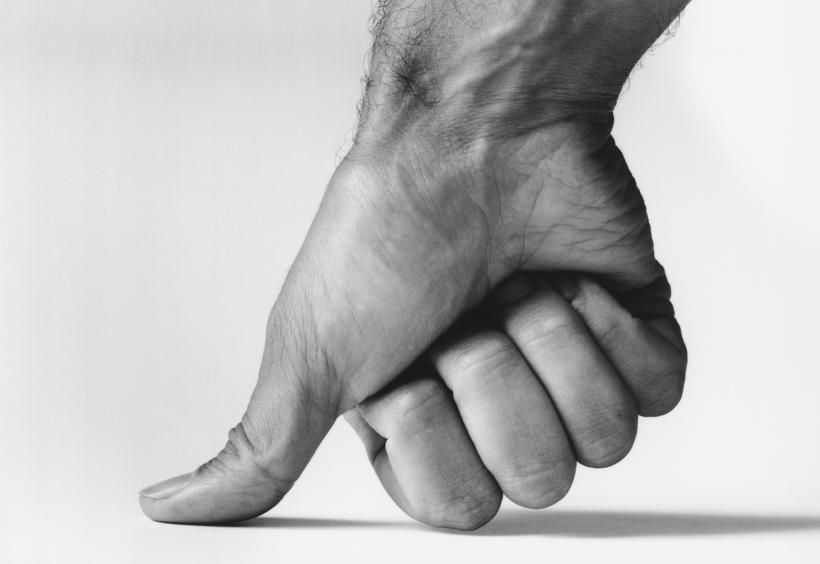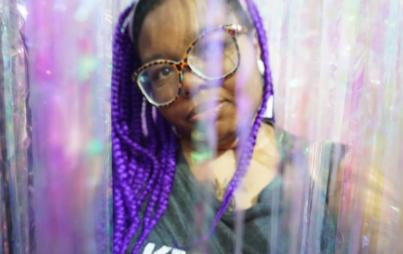
Good and bad cops are irrelevant when all law enforcement officials are insulated by a system that bestows upon them unfettered authority.
“I’m sick and tired of being sick and tired.” —Fannie Lou Hamer
Every day there is a different Black child, woman, or man who has been killed at the hands of state-sanctioned violence. Every day a new video surfaces depicting the inhumanity with which Black life is regarded. Every day there is a new hashtag and a new campaign to indict a killer cop.
This demoralizing narrative seeks retroactive justice as we endure a never-ending cycle of mourning each victim. It is unbearable. Fallen victims absolutely deserve to be honored in our words and actions, and perhaps it is necessary to integrate their stories into attacking the systems of oppression responsible for their deaths.
But allowing the media to center individual narratives of police officers who have senselessly stolen Black lives perpetuates the “bad apple” myth. This myth says that individual officers or departments lack necessary training, decorum, or resources to properly serve communities. It denies the reality that American police departments’ interaction with Black communities is rooted in the gruesome past of slave patrols sent out to chase, terrorize, capture, and return Black bodies to slave owners.
The “bad apple” myth tells us that there are good cops and bad ones that, with just a bit of reform, could easily be turned into good cops. This narrative is harmful to developing an understanding on how systems of oppression function; good and bad cops are irrelevant when all law enforcement officials are insulated by a system that bestows upon them unfettered authority. Good and bad cops are irrelevant to Black lives when American law enforcement culture indoctrinates people into anti-Blackness ideologies.
The idea that Blacks are targeted by the legal system due to some inherent inclination to commit crimes is routinely debunked and yet these stereotypes persist—ubiquitously—in media and police practice. In 2014, the American Civil Liberties Union released a study done in Illinois determining that Black and Latinos are four times more likely to be searched by police while whites were far more likely to possess contraband. There are also numerous studies detailing how implicit racial bias is responsible for unfoundedly perceiving Blacks as more dangerous than other ethnic groups.
With so much data negating stereotypes—why does the public fear Blackness?
Anti-Blackness is embedded into the fabric of American society. This is evident in the three-fifths compromise within the U.S. Constitution, which commodified Blackness during slavery, and the terrors of Jim Crow. Even prior to snatching Black bodies and shipping them to the Western world, imperialists set a precedent for depicting Blackness as subhuman. They kept detailed accounts viciously depicting African people as uncivilized savages. Throughout history, each of these systems justified the vile treatment of Blacks by dehumanizing the population.
The current system of social control over Blackness is mass incarceration. In The New Jim Crow, Michelle Alexander articulates how mass incarceration was ushered in using policies with race-neutral language in a less overtly racist society after Jim Crow was dismantled. The result of mass incarceration is that an overwhelming amount of Blacks are under social control through prison, probation, or parole. Criminalizing Blackness legally reinstitutes the oppression of Jim Crow as felons are barred from public benefits, participating on juries, disenfranchised as well as subjected to housing, education, and employment discrimination.
Here are staggering facts on mass incarceration:
President Reagan declared his drug war in 1982, three years prior to the crack epidemic. In the late 1990s, the CIA admitted it had previously run operations supporting Nicaraguan gangs who manufactured crack which ended up in Black communities. Recycling “tough on crime” rhetoric from the 1950s that purported Black activists as criminals and saturating media with imagery of “the criminal Black man,” Reagan launched a full-fledged attack on Black communities.
Local and state police militarization was encouraged, with federal grants supported by every seated U.S. President from Ronald Reagan to George W. Bush. This created an actual war, positioning police as occupying forces terrorizing Black communities. Programs offered to local police allow access to Pentagon military weaponry and tactical training from DEA programs to boost up their SWAT teams. Through civil asset forfeiture, police are allowed to maintain for their departments cash, vehicles, controlled substances, and other suspects’ possessions seized during arrest even if later found innocent of a crime.
Through incentivizing the “war on drugs” with grants, equipment, and rhetoric, America has ostensibly incentivized a war on Blackness. War causes causalities and thus communities bear witness to souls snatched from the bodies of Black girls and boys.
Reforms such as equipping officers with body cameras or providing them with additional training are suggested to combat extrajudicial killings of Blacks. However, these solutions increase resources of the police state while providing the public-filmed terror on Black bodies in high definition—if police even turn their body cams on. Efforts to change the grand jury system for indicting officers and forcing the Department of Justice to lead investigations are not viable long-term solutions for four major reasons:
- Neither prevents future extrajudicial killings
- The DOJ is an inseparable tool of the police state with its own racist history
- The injustice system cannot be trusted to indict and convict itself
- Jail time veritably does not deter crime and police are simply criminals by another name
When one realizes that society has maliciously constructed Black bodies to appear inherently violent, subhuman, and profitable—it becomes apparent that current systems of governance cannot reform away our oppression. Systems are emotionless; they cannot be reasoned with. The systems we have today were built to hoist up one person’s privilege on the back of another person’s oppression. Suggesting reformation as a means of eradicating oppression is to say that the system will cede its own power to the oppressed—this is entirely unheard of.
It is time we begin to imagine a society that is free of these inherently poisonous systems incapable of governing populations humanely. Imagine what a society with a new system looks like, what it feels like, and how we can build it.







